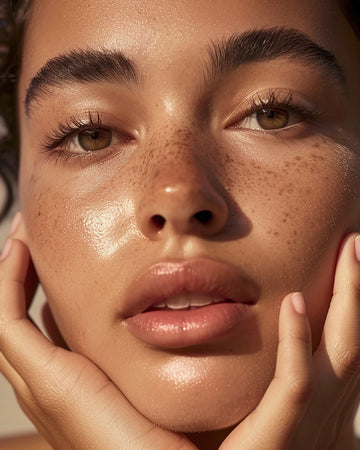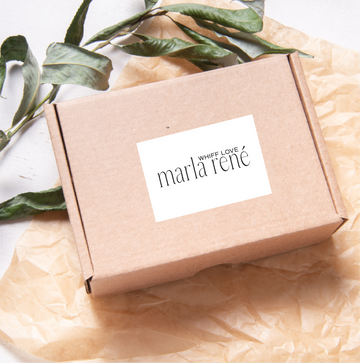The Importance of Skin Barrier Health
Summer, a season of warmth and relaxation, also poses unique challenges to our skin. Increased exposure to the sun, higher temperatures, and fluctuations in humidity can all impact the health of your skin barrier. This article will guide you in establishing a perfect summer routine for optimal skin barrier health.
The skin barrier serves a crucial role in protecting us from environmental hazards, preventing dehydration, and maintaining our overall health. A compromised skin barrier can lead to issues like dryness, inflammation, and sensitivity. Therefore, understanding the unique needs of our skin during the summer months is imperative for maintaining a healthy and glowing appearance.
The intensity varies depending on the individual, ranging from minimal notability to irritability. Most cases are mild, but in rare instances, redness and tenderness may occur. If experiencing any additional side effects, discontinue use and consult a medical professional. Please report any additional side effects to customer care.
Understanding The Skin Barrier: A Closer Look
Before delving into the perfect summer skincare routine, let's take a brief detour to understand what the skin barrier is and why it's vital for our health. The skin barrier, or stratum corneum, is the outermost layer of our skin. It's primarily composed of cells called corneocytes and lipids, which act like bricks and mortar, respectively, providing a protective barrier against the outside world 1.
When this barrier is healthy, it locks in necessary moisture and keeps out harmful substances. However, various factors can weaken the skin barrier, making it more susceptible to damage.
Summer Challenges for Skin Barrier
Summer is a time of the year when the health of our skin barrier is put to the test. Exposure to the sun can lead to oxidative stress, which damages the skin cells 2. Meanwhile, humidity changes can disrupt the skin’s natural hydration balance, leading to either excessive dryness or oiliness. Let's break down these challenges:
Sun Exposure: Extended sun exposure is one of the biggest threats to skin barrier health. UV radiation can cause DNA damage, promote inflammation, and accelerate skin aging 3.
Humidity Changes: Summer weather can be inconsistent, leading to changes in humidity that can disrupt your skin’s moisture balance. Both high and low humidity can cause issues, such as excessive oiliness or dryness 4.
Heat: Excessive heat can increase sweat and oil production, leading to blocked pores and breakouts. It can also cause transepidermal water loss, leading to dryness and irritation 5.
Understanding these challenges can help us form an effective summer skincare routine that focuses on protecting and nurturing our skin barrier.
Crafting Your Perfect Summer Routine for Skin Barrier Health
Here are some steps to follow for optimal skin barrier health during the hot summer months:
1. Sunscreen Is Non-Negotiable
An effective summer skincare routine starts with sunscreen. Apply a broad-spectrum sunscreen with at least SPF 30 every day, regardless of whether you plan to spend time in the sun or not. Broad-spectrum sunscreens protect your skin from both UVA and UVB rays, helping to prevent sunburn, skin cancer, and premature skin aging 6.
2. Stay Hydrated
Drinking plenty of water is a natural way to maintain your skin barrier's health. Hydration aids in skin elasticity slows the aging process, and maintains a healthy skin
balance. In addition, topical hydration is also crucial. Look for moisturizers with ingredients like hyaluronic acid and glycerin that draw moisture into the skin and keep it there 7.
3. Gentle Exfoliation
Regular exfoliation helps remove dead skin cells and excess sebum that may clog your pores. However, during the summer months, it's essential to not over-exfoliate as it can strip away the skin's protective barrier, leading to sensitivity and inflammation. Therefore, choose gentle exfoliants and limit your exfoliation routine to once or twice a week 8.
4. Antioxidant-Rich Skincare Products
UV rays and heat generate free radicals that can damage your skin at the cellular level, leading to premature aging. Using skincare products rich in antioxidants, such as vitamin C, vitamin E, and green tea extract, can neutralize these free radicals, preventing damage 9.
5. Incorporate Ceramides into Your Routine
Ceramides are lipids that makeup about 50% of the skin's composition to form its barrier and help the skin retain moisture 10. By using products that are packed with ceramides, you can strengthen your skin's barrier, lock in moisture, and protect against environmental aggressors.
Conclusion: Healthier Skin All Summer Long
Summer should be a time for relaxation and rejuvenation, and your skin deserves the same treatment. By understanding the unique challenges posed by summer conditions and adjusting your skincare routine accordingly, you can keep your skin barrier healthy and enjoy a radiant glow all season long.
Remember, your skin's needs may change with the environment, and it's crucial to pay attention to any signs of distress. Always consult with a dermatologist or a skincare professional if you notice any significant changes in your skin's appearance or texture. A healthy skin barrier is not only about looking good; it's an integral part of our overall well-being.
References:
- Proksch E, Brandner JM, Jensen JM. The skin: an indispensable barrier. Exp Dermatol. 2008;17(12):1063-1072. doi:10.1111/j.1600-0625.2008.00786.x.
- Poljšak B, Dahmane R, Godić A. Intrinsic skin aging: The role of oxidative stress. Acta Dermatovenerol Alp Pannonica Adriat. 2012;21(2):33-36.
- Rittie L, Fisher GJ. UV-light-induced signal cascades and skin aging. Ageing Res Rev. 2002;1(4):705-720. doi:10.1016/s1568-1637(02)00024-7.
- Proksch E. pH in nature, humans, and skin. J Dermatol. 2018;45(9):1044-1052. doi:10.1111/1346-8138.14316.
- Marrakchi S, Maibach HI. Biophysical parameters of skin: map of human face, regional, and age-related differences. Contact Dermatitis. 2007;57(1):28-34. doi:10.1111/j.1600-0536.2007.01138.x.](https://www.ncbi.nlm.nih.gov/pmc/articles/PMC4371636/) 6. Sun Safety. U.S. Centers for Disease Control and Prevention.
- Papakonstantinou E, Roth M, Karakiulakis G. Hyaluronic acid: A key molecule in skin aging. Dermatoendocrinol. 2012;4(3):253-258. doi:10.4161/derm.21923.
- Leyden JJ, Stein-Gold L, Weiss J. Why Topical Retinoids Are Mainstay of Therapy for Acne. Dermatol Ther (Heidelb). 2017;7(3):293-304. doi:10.1007/s13555-017-0185-2.
- Pinnell SR. Cutaneous photodamage, oxidative stress, and topical antioxidant protection. J Am Acad Dermatol. 2003;48(1):1-19; quiz 20-2. doi:10.1067/mjd.2003.16.
- Mori M, Kida Y, Matsunaga K, Niijima M. Changes in ceramides and glucosylceramides in mouse skin and human epidermal equivalents during aging. J Dermatol Sci. 2018;90(3):334-336. doi:10.1016/j.jdermsci.2018.03.011.








